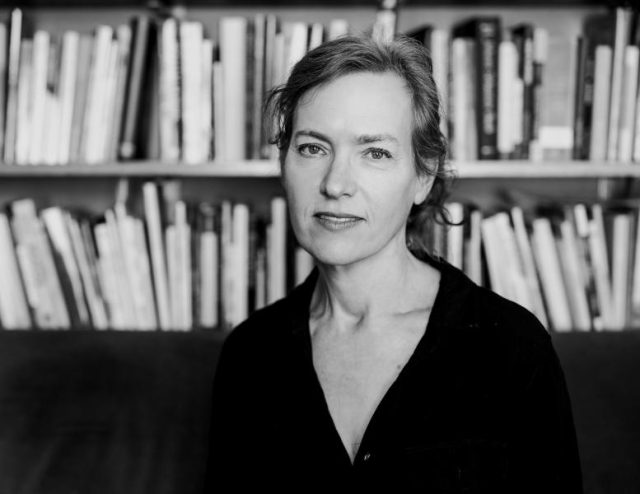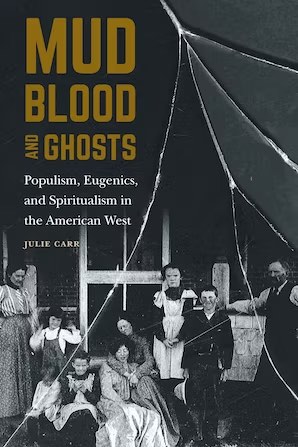
The librarian let Julie Carr look at the box, but she couldn’t look in it.
Carr, a professor in CU’s English department, knew her great-grandfather’s 11-volume autobiography was inside, but until an issue cleared with “Legal,” Carr couldn’t read the archives for herself.
She knew some of Omer Madison Kem’s story: Born in 1855, Kem became a radical populist homesteader and congressional representative of Nebraska, pushed toward politics by poverty and debt, critical of capitalist greed and income inequality.
The librarian at Creighton University in Omaha explained to Carr that another of Kem’s relatives had emailed inquiring about the archive. But the relative soon accused the librarian of withholding and mishandling the documents, going so far as to cc the dean of libraries and the president of the university in scathing emails. The librarian maintained he was just doing his job.
“It was an important setup for the book,” Carr says. “Because a lot of what the book is dealing with are these tensions and conflicts between elites and everybody else, which is at the root of populism.”
A year after her first attempt to read the archive, in 2017, Carr returned to Creighton with her father, Kem’s grandson. The issue with “Legal” had been resolved, and the two spent three days reading thousands of pages of memoir, “inviting,” as Carr says, “a haunting” that would drive her to write Mud, Blood and Ghosts: Populism, Eugenics and Spiritualism in the American West.
“To invite the ghosts into the open,” Carr writes, “one must be ready to hear what they teach. No doubt I did not know then what ghosts I was about to reckon with.”
‘This isn’t a distant thing’

Omer Kem loomed large in Julie Carr’s family. Carr knew Kem had transcended “hand-to-mouth” poverty by traveling West through the Homestead Act of 1862, eventually becoming outspoken about income inequality as a member of the left-leaning Populist Party. A staunch atheist, his memoirs contained tirades against the hypocrisy of religion.
But at the library, Carr discovered a new facet to Kem: a letter from Kem’s adult son Huxley, describing how a girl wasn’t invited to his 7-year-old daughter’s birthday party. The girl’s mother was white, and indeed the little girl herself looked white, but her father was an ‘octoroon,” meaning one of his eight grandparents was Black, most likely a woman who’d been raped.
“Kem’s response,” Carr writes in the book, “is to articulate, as I would discover he had done many, many times in letters, speeches and editorials, the concept of race purity, which was expressed in those years with the formula ‘a single drop of blood spoils the whole.’”
Carr soon found this was a “mild act of bigotry” when compared to Kem’s 30-year obsession with eugenics, with sterilizing disabled people, the poor and those of color.
In 2017, with Trump in office and “populism” back in the American vernacular, everyone was arguing over why: Had working-class, poor whites been so marginalized, so “left behind” by globalism and the liberal elite, or was this purely driven by racism? And how did Trump’s so-called populism stem from Kem’s?
So Carr used her family tree to trace the roots of American populism back to the Progressive Era. And while it’s Carr’s family, it’s an American story. Understanding how temporally close Americans are to slavery and genocide puts current societal debates — immigration, gentrification, policing — into context, forces us to see how racist lines of logic built our culture and continue to shape our society today.
As the author of numerous books of poetry, Carr uses rhythm, repetition and metaphor to weave history and autobiography into a rhapsodic snapshot of American populism as it emerges in the wake of the Gilded Age.
“If we’re semi-educated we know these histories, the broad strokes,” Carr says. “And we might have a sense of our own lineages and histories, but it really doesn’t hold a lot of power over us unless we study the details. When we do, a strange thing happens: You get a sense of history kaleidoscoping towards you and it suddenly isn’t this distant thing.”














